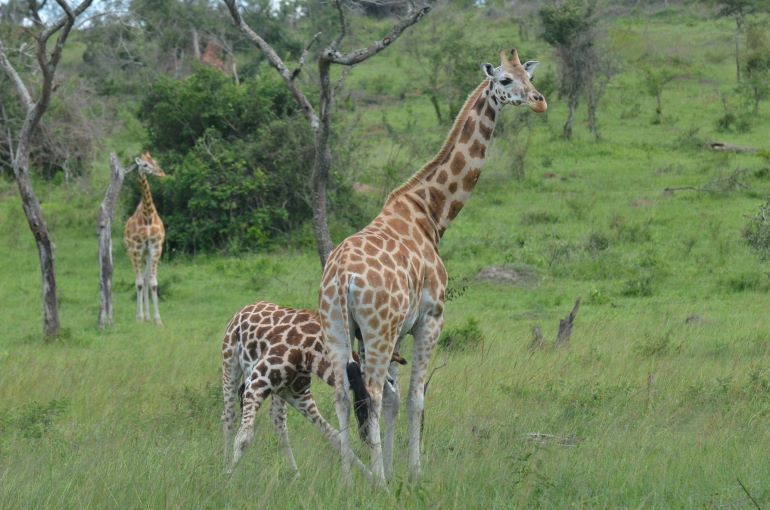KIRUHURA, May 29, 2025 –– The Chief Warden of Lake Mburo National Park, Fredrick Elia Kisame, has criticised the judiciary for failing to issue sufficiently tough sentences to wildlife criminals, a situation he says is fuelling a rise in poaching across Uganda’s national parks.
Speaking at a recent media engagement in the Ankole sub-region, Kisame said courts of law often hand down lenient penalties to poachers, undermining conservation efforts by the Uganda Wildlife Authority [UWA], the managers of national parks in the country.
“Poaching is not only a problem in Lake Mburo, but across all parks in Uganda,” Kisame said. “The circumstances vary, but the root causes remain: demand for animal products and inadequate legal deterrents. Some people are incited into poaching by the promise of quick profits.”
He pointed out that one major obstacle to effective prosecution is a lack of understanding among judicial officers about the importance of wildlife conservation.
“Sometimes the sentences are too soft to act as a deterrent. Some judicial officers fail to see the gravity of the crime. A man who kills an impala is often viewed as just hunting for food. Yet if that same man kills a cow in someone’s kraal, the sentence is much harsher,” Kisame said. “This mindset needs to change.”
He called on the government to increase support for the UWA, especially in the areas of prosecution and investigation of wildlife crimes. Kisame emphasised the need for specialised training for prosecutors and investigators to help build strong cases in court.
“If a prosecutor lacks proper training, the case may fall apart. Gathering evidence, such as proving that seized meat came from protected wildlife, can be difficult,” he explained.
Staffing levels also remain a concern at Lake Mburo. “We are understaffed. We don’t yet have the personnel numbers we need to carry out our law enforcement duties effectively, especially given the evolving nature of poaching and wildlife crime,” Kisame added.
He urged journalists to be responsible in their reporting on Uganda’s wildlife sector, warning that inaccurate or sensational stories can scare away tourists and damage the country’s image.
“If you have concerns or stories about any of our parks, come and talk to us first. Don’t just publish negative stories. These can discourage potential visitors and hurt tourism,” he said.
Kisame also encouraged the public and business community to participate in the upcoming Pearl of Africa Tourism Expo [POATE] in Kampala. “We’re expecting many delegates, and some have already visited Lake Mburo. The expo will take place towards the end of the month,” he said.
Scovia Musiimenta, Communications Officer at the Uganda Wildlife Conservation Education Centre [UWCEC], also addressed the media, urging journalists to highlight the frequency, severity, and impact of wildlife crimes.
“You play a critical role in shaping public opinion and promoting conservation. We want you to adopt ethical, responsible journalism, especially in high-risk conservation areas,” Musiimenta said.
She noted that UWA is responsible for community conservation, tourism, law enforcement, intelligence, investigation, and prosecution. “We aim to protect endangered species and prevent the over-exploitation of natural resources, in line with national and international commitments,” she added.
Felix Ainebyoona, one of the journalists who participated in the media engagement with UWA called for improved relationship between the oragnisation and communities living near the game parks. He criticised what he described as the heavy-handed treatment of local residents suspected of entering protected areas.
“Is killing locals part of fostering good relations with wildlife? In Rubirizi, when elephants destroy gardens, it’s not treated as a crime. But when someone is found in the park, they can be shot. Just last week we buried a man who was killed under such circumstances,” Ainebyoona said.
Meanwhile, Allen Kenzarwa, a ranger guide at Lake Mburo, gave an overview of the park, describing it as one of Uganda’s smallest savannah parks, covering 370 square kilometres and home to around 70 mammal species and 350 bird species.
“It was originally a hunting ground in the 1930s, then became a game reserve in the 1950s before being gazetted as a national park in 1983,” Kenzarwa said.
Lake Mburo National Park, located in Kiruhura District and bordering Isingiro and Mbarara, offers a variety of activities including game drives, boat rides, and bird watching.
According to UWA officials, poaching in Uganda poses significant dangers, impacting wildlife, ecosystems, and even human health. It leads to a decline in species populations, disrupts ecosystems, and can contribute to the emergence of zoonotic diseases. Additionally, poaching poses threats to national park rangers and tourism revenue.
Buy your copy of thecooperator magazine from one of our country-wide vending points or an e-copy on emag.thecooperator.news
